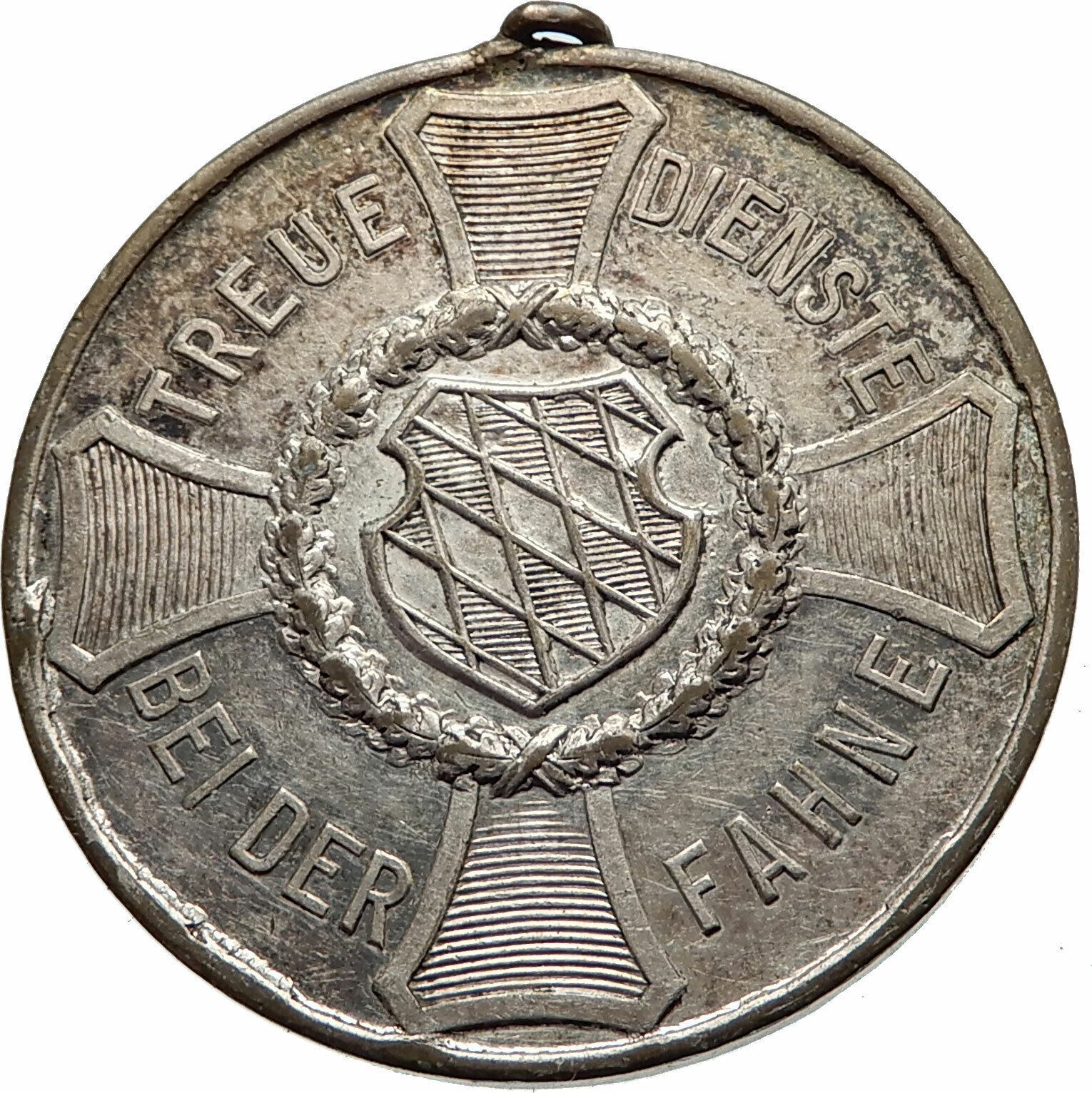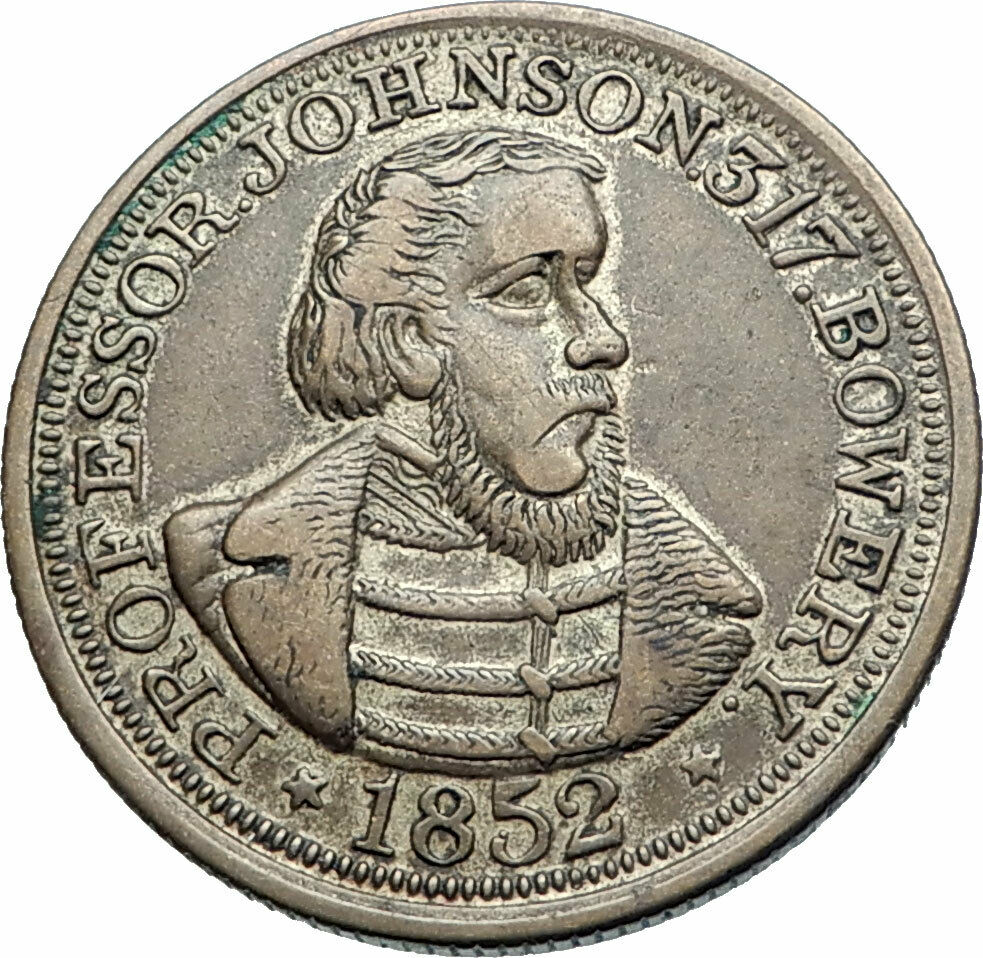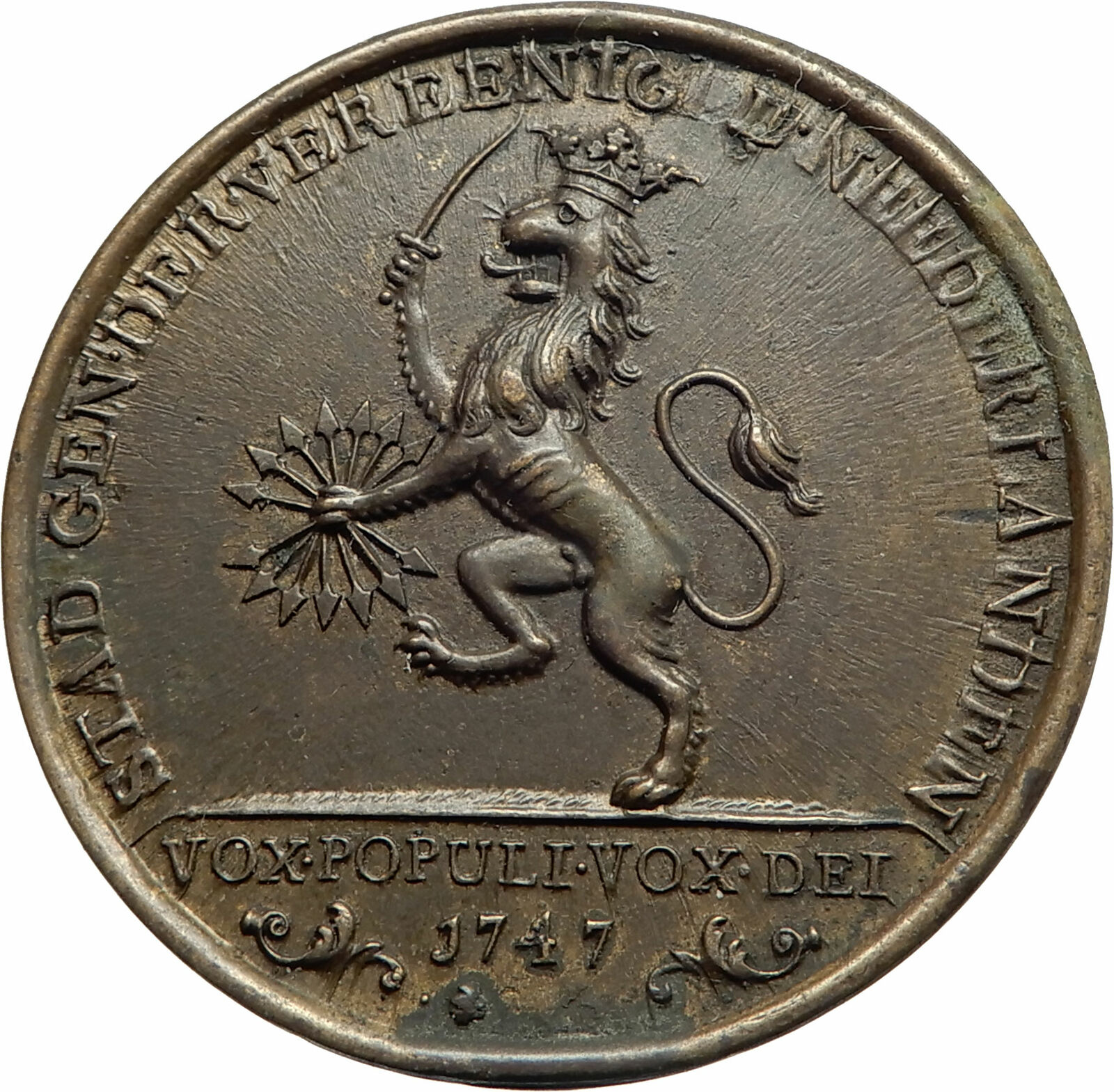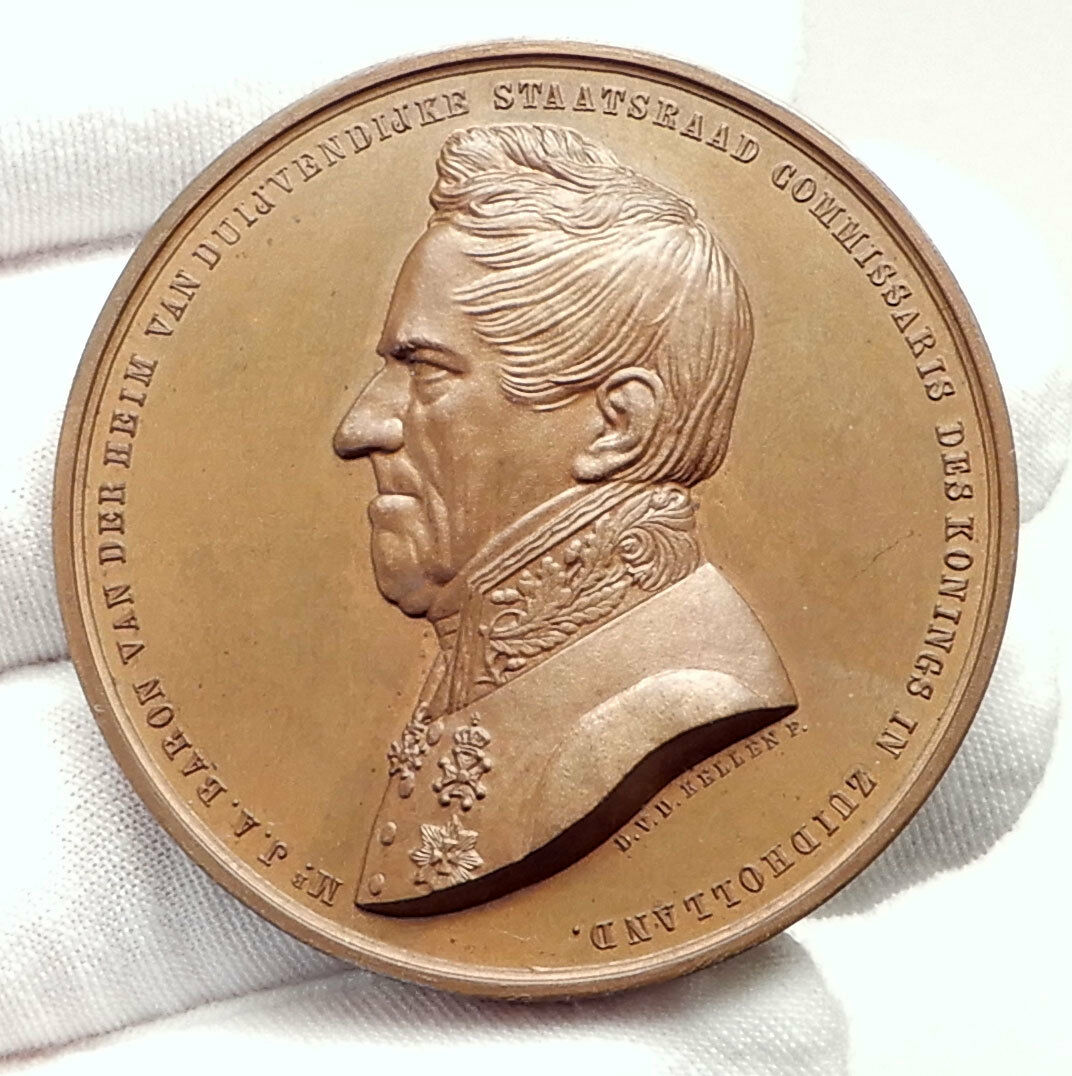|
Israel – Ze’ev Jabotinsky
1980 (5741) Bronze Medal 70mm (139.40 grams)
Reference: ICMC# 15075701 Mintage: 6088
A sculptured likeness of Jabotinsky together with his signature in Hebrew and English.
ZION IS OURS, On the right, the Betar emblem. On the left, a quotation from Jabotinsky – “Zion is ours” in Hebrew and English.
EDGE:
STATE OF ISRAEL in Hebrew and English
Medal Notes:
Ze’ev Jabotinsky (1880-1940) had distinguished himself while still a youth in his struggle on behalf of Jewish rights in Tzarist Russia. During the First World War, he, together with Trumpeldor, advocated the setting up of a Hebrew army. He enlisted in the “Royal Fusiliers” and with it he reached the Palestine front. During the riots in Jerusalem in 1920 he was the “Haganah” commander. Arrested, he was sentenced to fifteen years with hard labour. After receiving a pardon, he was elected to the Zionist Executive. Later he resigned because of his opposition to the Weizmann Pro-British policy and organized the “New Zionist Organization” based upon his own Revisionist movement. Within the Jewish communities in East Europe, he strongly advocated forsaking the diaspora en masse and migrating to Palestine “illegally”. As a commander of BETAR, he prepared the youth belonging to his movement for war in Palestine. He died in New York in the midst of his travels in the United States where he urged the setting up of a Jewish army and the establishment of a Jewish state. In his will he requested that his remains be transferred to Palestine “but only upon orders from the government of the Jewish State which will surely come into being”. His remains were transferred to Jerusalem in 1964 by order of Prime Minister Levi Eshkol and accorded a State funeral on Mount Herzl. Ze’ev Jabotinsky was a man of many talents; a gifted statesman, poet, writer, translator and orator. The Israel Government Coins and Medals Corporation issued a special State medal marking the centenary of his birth.
You are bidding on the exact item pictured, provided with a Certificate of Authenticity and Lifetime Guarantee of Authenticity.
 Ze’ev Jabotinsky, born Vladimir Yevgenyevich Zhabotinsky, Russian: Влади́мир Евге́ньевич Жаботи́нский; 5 (17) October 1880, Odessa – 3 August 1940, Hunter, New York), was a Russian Jewish Revisionist Zionist leader, author, poet, orator, soldier and founder of the Jewish Self-Defense Organization in Odessa. With Joseph Trumpeldor, he co-founded the Jewish Legion of the British army in World War I. Later he established several Jewish organizations in Palestine, including Betar, Hatzohar, and the Irgun. Ze’ev Jabotinsky, born Vladimir Yevgenyevich Zhabotinsky, Russian: Влади́мир Евге́ньевич Жаботи́нский; 5 (17) October 1880, Odessa – 3 August 1940, Hunter, New York), was a Russian Jewish Revisionist Zionist leader, author, poet, orator, soldier and founder of the Jewish Self-Defense Organization in Odessa. With Joseph Trumpeldor, he co-founded the Jewish Legion of the British army in World War I. Later he established several Jewish organizations in Palestine, including Betar, Hatzohar, and the Irgun.
His influence on Israeli politics is profound: through his closest protégé Menachem Begin’s administration (1977-1983), consolidating the domination of Israeli politics by the right-wing Likud party; and through the administrations (1996-1999, 2009-) of Likud’s leader (1993-1999, 2005-) Benjamin Netanyahu, the son of his former personal secretary and historian, Benzion Netanyahu.
Vladimir Yevgenyevich (Yevnovich) Zhabotinsky was born in Odessa, Kherson Governorate (modern Ukraine) into an assimilated Jewish family. His father, Yevno (Yevgeniy Grigoryevich) Zhabotinsky, hailed from Nikopol, Yekaterinoslav Governorate. He was a member of the Russian Society of Sailing and Trade and was primarily involved in wheat trading. His mother, Chava (Eva Markovna) Zach (1835-1926), came from Berdychiv, Kiev Governorate. Jabotinsky’s older brother Myron died when Vladimir was six months old, and his father died when he was six years old. His sister, Tereza (Tamara Yevgenyevna) Zhabotinskaya-Kopp, founded a private school for girls in Odessa. In 1885, the family moved to Germany due to his father’s illness, returning a year later after his father’s death.
Raised in a middle-class Jewish home, Jabotinsky was educated in Russian schools. Although he studied Hebrew as a child, he wrote in his autobiography that his upbringing was divorced from Jewish faith and tradition. His mother ran a stationary store in Odessa. Jabotinsky dropped out of school at the age of 17 with a guarantee of a job as a correspondent for a local Odessan newspaper, the Odesskiy Listok, and was sent to Bern and Rome as a correspondent. He also worked for the Odesskie Novosti after his return from Italy. Jabotinsky was a childhood friend of Russian journalist and poet Korney Chukovsky.
Jabotinsky was a student at the Sapienza University of Rome law school, but did not graduate. In addition to Russian, Yiddish and Hebrew, he spoke fluent Italian.
In April 1902 he was arrested for writing feuilletons in an anti-establishment tone, as well as contributing to a radical Italian journal. He was held isolated in a prison cell in Odessa for two months, where he communicated with other inmates through shouting and passing written notes.
He married Joanna (or Ania) Galperina in October 1907. They had one child, Eri Jabotinsky, who later became a member of the Irgun-inspired Bergson Group. Eri Jabotinsky briefly served in the 1st Knesset of Israel; he died on 6 June 1969.
 Israel (/ˈɪzriəl, ˈɪzreɪəl/; Hebrew: יִשְׂרָאֵל; Arabic: إِسْرَائِيل), officially the State of Israel, is a country in the Middle East, on the southeastern shore of the Mediterranean Sea and the northern shore of the Red Sea. It has land borders with Lebanon to the north, Syria to the northeast, Jordan on the east, the Palestinian territories of the West Bank and Gaza Strip to the east and west, respectively, and Egypt to the southwest. The country contains geographically diverse features within its relatively small area. Israel’s economic and technological center is Tel Aviv, while its seat of government and proclaimed capital is Jerusalem, although the state’s sovereignty over Jerusalem has only partial recognition. Israel (/ˈɪzriəl, ˈɪzreɪəl/; Hebrew: יִשְׂרָאֵל; Arabic: إِسْرَائِيل), officially the State of Israel, is a country in the Middle East, on the southeastern shore of the Mediterranean Sea and the northern shore of the Red Sea. It has land borders with Lebanon to the north, Syria to the northeast, Jordan on the east, the Palestinian territories of the West Bank and Gaza Strip to the east and west, respectively, and Egypt to the southwest. The country contains geographically diverse features within its relatively small area. Israel’s economic and technological center is Tel Aviv, while its seat of government and proclaimed capital is Jerusalem, although the state’s sovereignty over Jerusalem has only partial recognition.

Israel has evidence of the earliest migration of hominids out of Africa. Canaanite tribes are archaeologically attested since the Middle Bronze Age, while the Kingdoms of Israel and Judah emerged during the Iron Age. The Neo-Assyrian Empire destroyed Israel around 720 BCE. Judah was later conquered by the Babylonian, Persian and Hellenistic empires and had existed as Jewish autonomous provinces. The successful Maccabean Revolt led to an independent Hasmonean kingdom by 110 BCE, which in 63 BCE however became a client state of the Roman Republic that subsequently installed the Herodian dynasty in 37 BCE, and in 6 CE created the Roman province of Judea. Judea lasted as a Roman province until the failed Jewish revolts resulted in widespread destruction, expulsion of Jewish population and the renaming of the region from Iudaea to Syria Palaestina.[34] Jewish presence in the region has persisted to a certain extent over the centuries. In the 7th century the Levant was taken from the Byzantine Empire by the Arabs and remained in Muslim control until the First Crusade of 1099, followed by the Ayyubid conquest of 1187. The Mamluk Sultanate of Egypt extended its control over the Levant in the 13th century until its defeat by the Ottoman Empire in 1517. During the 19th century, national awakening among Jews led to the establishment of the Zionist movement in the diaspora followed by waves of immigration to Ottoman and later British Palestine.
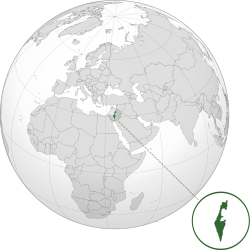 In 1947, the United Nations adopted a Partition Plan for Palestine recommending the creation of independent Arab and Jewish states and an internationalized Jerusalem. The plan was accepted by the Jewish Agency, and rejected by Arab leaders. The following year, the Jewish Agency declared the independence of the State of Israel, and the subsequent 1948 Arab-Israeli War saw Israel’s establishment over most of the former Mandate territory, while the West Bank and Gaza were held by neighboring Arab states. Israel has since fought several wars with Arab countries, and it has since 1967 occupied territories including the West Bank, Golan Heights and the Gaza Strip (still considered occupied after 2005 disengagement, although some legal experts dispute this claim).[41][42][43][fn 4] It extended its laws to the Golan Heights and East Jerusalem, but not the West Bank. Israel’s occupation of the Palestinian territories is the world’s longest military occupation in modern times.[fn 4][49] Efforts to resolve the Israeli-Palestinian conflict have not resulted in a final peace agreement. However, peace treaties between Israel and both Egypt and Jordan have been signed. In 1947, the United Nations adopted a Partition Plan for Palestine recommending the creation of independent Arab and Jewish states and an internationalized Jerusalem. The plan was accepted by the Jewish Agency, and rejected by Arab leaders. The following year, the Jewish Agency declared the independence of the State of Israel, and the subsequent 1948 Arab-Israeli War saw Israel’s establishment over most of the former Mandate territory, while the West Bank and Gaza were held by neighboring Arab states. Israel has since fought several wars with Arab countries, and it has since 1967 occupied territories including the West Bank, Golan Heights and the Gaza Strip (still considered occupied after 2005 disengagement, although some legal experts dispute this claim).[41][42][43][fn 4] It extended its laws to the Golan Heights and East Jerusalem, but not the West Bank. Israel’s occupation of the Palestinian territories is the world’s longest military occupation in modern times.[fn 4][49] Efforts to resolve the Israeli-Palestinian conflict have not resulted in a final peace agreement. However, peace treaties between Israel and both Egypt and Jordan have been signed.
In its Basic Laws, Israel defines itself as a Jewish and democratic state. Israel is a representative democracy[neutrality is disputed] with a parliamentary system, proportional representation and universal suffrage. The prime minister is head of government and the Knesset is the legislature. Israel is a developed country and an OECD member, with the 32nd-largest economy in the world by nominal gross domestic product as of 2017. The country benefits from a highly skilled workforce and is among the most educated countries in the world with one of the highest percentages of its citizens holding a tertiary education degree. Israel has the highest standard of living in the Middle East, and has one of the highest life expectancies in the world.
|





 Ze’ev Jabotinsky, born Vladimir Yevgenyevich Zhabotinsky, Russian: Влади́мир Евге́ньевич Жаботи́нский; 5 (17) October 1880, Odessa – 3 August 1940, Hunter, New York), was a Russian Jewish Revisionist Zionist leader, author, poet, orator, soldier and founder of the Jewish Self-Defense Organization in Odessa. With Joseph Trumpeldor, he co-founded the Jewish Legion of the British army in World War I. Later he established several Jewish organizations in Palestine, including Betar, Hatzohar, and the Irgun.
Ze’ev Jabotinsky, born Vladimir Yevgenyevich Zhabotinsky, Russian: Влади́мир Евге́ньевич Жаботи́нский; 5 (17) October 1880, Odessa – 3 August 1940, Hunter, New York), was a Russian Jewish Revisionist Zionist leader, author, poet, orator, soldier and founder of the Jewish Self-Defense Organization in Odessa. With Joseph Trumpeldor, he co-founded the Jewish Legion of the British army in World War I. Later he established several Jewish organizations in Palestine, including Betar, Hatzohar, and the Irgun.  Israel (/ˈɪzriəl, ˈɪzreɪəl/; Hebrew: יִשְׂרָאֵל; Arabic: إِسْرَائِيل), officially the State of Israel, is a country in the Middle East, on the southeastern shore of the Mediterranean Sea and the northern shore of the Red Sea. It has land borders with Lebanon to the north, Syria to the northeast, Jordan on the east, the Palestinian territories of the West Bank and Gaza Strip to the east and west, respectively, and Egypt to the southwest. The country contains geographically diverse features within its relatively small area. Israel’s economic and technological center is Tel Aviv, while its seat of government and proclaimed capital is Jerusalem, although the state’s sovereignty over Jerusalem has only partial recognition.
Israel (/ˈɪzriəl, ˈɪzreɪəl/; Hebrew: יִשְׂרָאֵל; Arabic: إِسْرَائِيل), officially the State of Israel, is a country in the Middle East, on the southeastern shore of the Mediterranean Sea and the northern shore of the Red Sea. It has land borders with Lebanon to the north, Syria to the northeast, Jordan on the east, the Palestinian territories of the West Bank and Gaza Strip to the east and west, respectively, and Egypt to the southwest. The country contains geographically diverse features within its relatively small area. Israel’s economic and technological center is Tel Aviv, while its seat of government and proclaimed capital is Jerusalem, although the state’s sovereignty over Jerusalem has only partial recognition.
 In 1947, the United Nations adopted a Partition Plan for Palestine recommending the creation of independent Arab and Jewish states and an internationalized Jerusalem. The plan was accepted by the Jewish Agency, and rejected by Arab leaders. The following year, the Jewish Agency declared the independence of the State of Israel, and the subsequent 1948 Arab-Israeli War saw Israel’s establishment over most of the former Mandate territory, while the West Bank and Gaza were held by neighboring Arab states. Israel has since fought several wars with Arab countries, and it has since 1967 occupied territories including the West Bank, Golan Heights and the Gaza Strip (still considered occupied after 2005 disengagement, although some legal experts dispute this claim).[41][42][43][fn 4] It extended its laws to the Golan Heights and East Jerusalem, but not the West Bank. Israel’s occupation of the Palestinian territories is the world’s longest military occupation in modern times.[fn 4][49] Efforts to resolve the Israeli-Palestinian conflict have not resulted in a final peace agreement. However, peace treaties between Israel and both Egypt and Jordan have been signed.
In 1947, the United Nations adopted a Partition Plan for Palestine recommending the creation of independent Arab and Jewish states and an internationalized Jerusalem. The plan was accepted by the Jewish Agency, and rejected by Arab leaders. The following year, the Jewish Agency declared the independence of the State of Israel, and the subsequent 1948 Arab-Israeli War saw Israel’s establishment over most of the former Mandate territory, while the West Bank and Gaza were held by neighboring Arab states. Israel has since fought several wars with Arab countries, and it has since 1967 occupied territories including the West Bank, Golan Heights and the Gaza Strip (still considered occupied after 2005 disengagement, although some legal experts dispute this claim).[41][42][43][fn 4] It extended its laws to the Golan Heights and East Jerusalem, but not the West Bank. Israel’s occupation of the Palestinian territories is the world’s longest military occupation in modern times.[fn 4][49] Efforts to resolve the Israeli-Palestinian conflict have not resulted in a final peace agreement. However, peace treaties between Israel and both Egypt and Jordan have been signed. 

